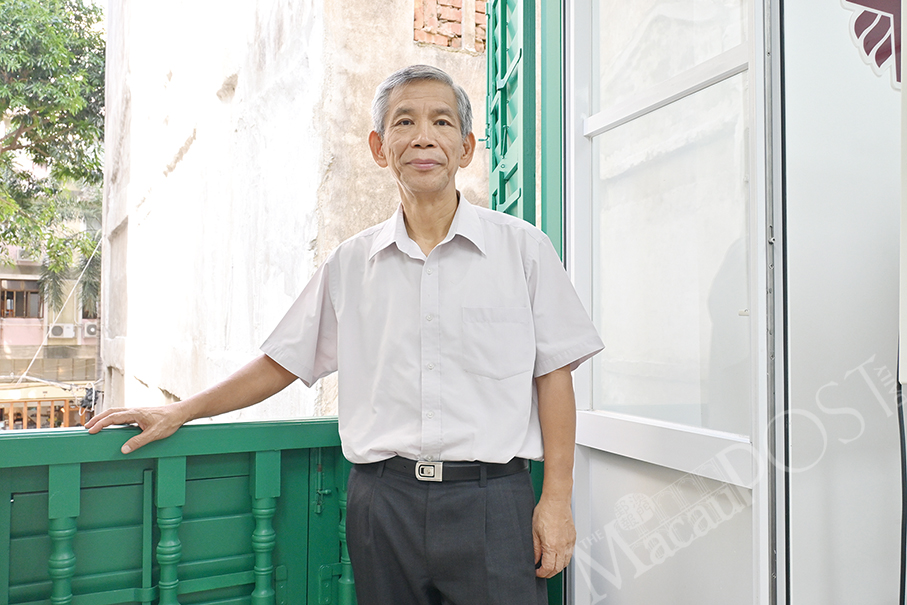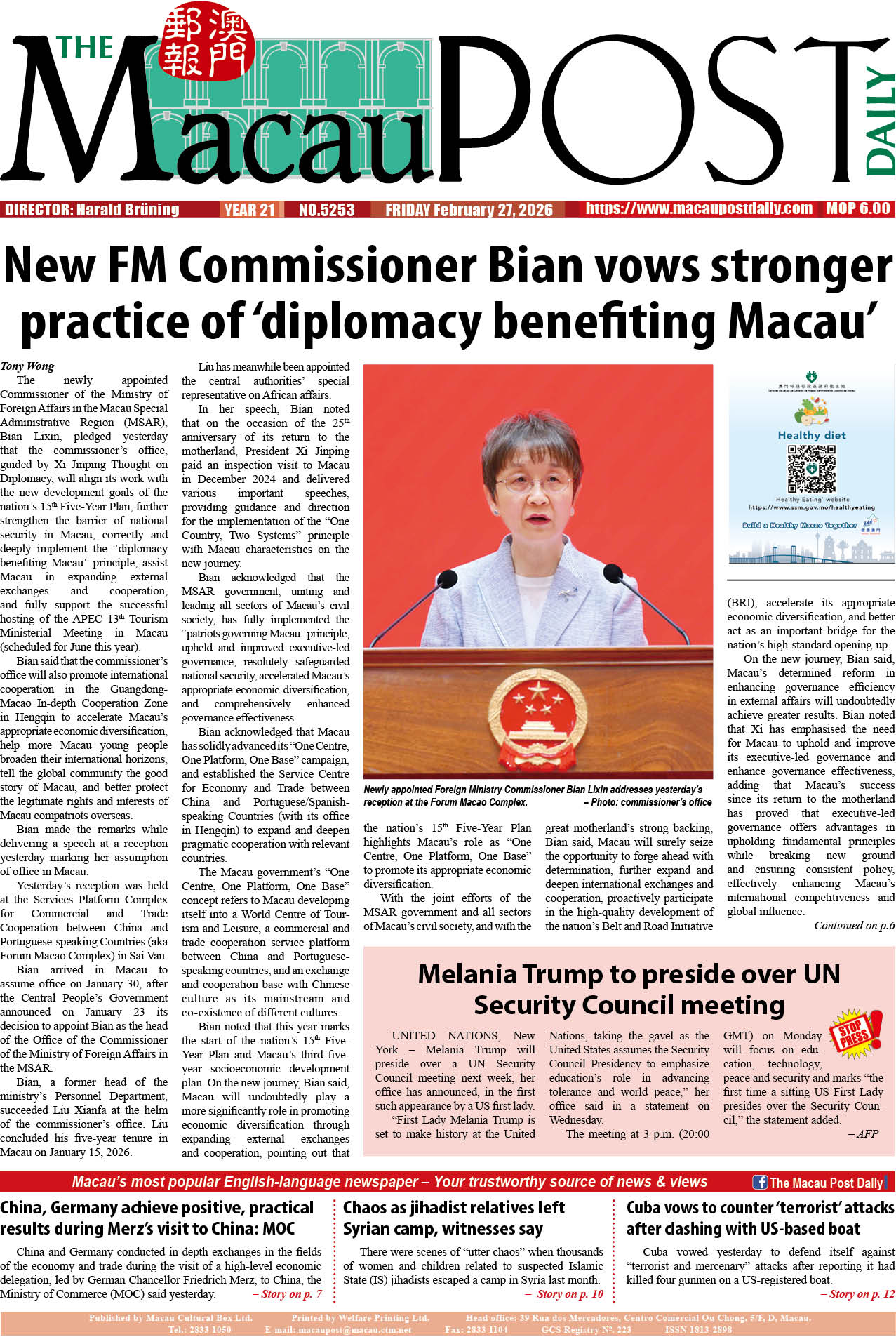Lei says bill must be specific to Macau’s characteristics
The Legislative Assembly (AL) yesterday passed the outline of the government’s first-ever trade union bill, and the debate during yesterday’s plenary session focused on the fact that the bill does not include the right of collective bargaining, nor does it include workers’ right to strike enshrined in the Macau Basic Law.
During yesterday’s Q&A session in the legislature’s hemicycle, Secretary for Economy and Finance Lei Wai Nong said that Macau’s trade unions could, however, collectively bargain on behalf of their members over fundamental employment conditions.
The outline of the bill was passed with 27 votes in favour and two abstentions. 30 lawmakers attended yesterday’s plenary session.
New Hope lawmakers José Maria Pereira Coutinho and Che Sai Wang abstained. Both are members of the Macau Civil Servants Association (ATFPM).
It is the first time that the legislature has passed a trade union bill. Twelve previous bills proposed by various lawmakers – most of them by Coutinho – over the past two decades were always rejected by the legislature.
Macau is the only jurisdiction in China that still does not have a trade union law – unlike the Chinese mainland, Taiwan and Hong Kong.
Lei said that according to the opinions gathered from residents during last year’s public consultation on the bill, there was still no consensus in the community for workers’ right to carry out collective bargaining, adding that the bill should be in line with Macau’s economic development and actual conditions.
“The trade union law should be specific to Macau’s characteristics,” Lei insisted, stressing that workers’ rights such as collective bargaining and industrial action would be promoted gradually in the light of the actual circumstances and overall interests of Macau.
The bill proposes that trade unions may enjoy certain powers and functions, such as negotiating with employers about employment conditions, assisting in the resolution of labour disputes, giving the government suggestions on labour policy legislation, and providing occupational training.
According to Lei, in recent years, nearly 93 percent of Macau’s labour disputes were resolved through the Labour Affairs Bureau (DSAL) or trade organisations, while seven percent were resolved through the courts, reflecting the fact that labour relations in Macau “have always been harmonious” and that there “has always been a mechanism to coordinate labour disputes very well” – even before the current bill was proposed.
Lei said that the Labour Affairs Bureau (DSAL) would be trade unions’ main supervisory and approval authority if the bill is passed.
Weapons bill passed
The legislature also passed the outline of a bill regulating the private possession and use of weapons with 30 votes.
Secretary for Security Wong Sio Chak told the lawmakers that the current legislation on the matter was rather “simple” and did not properly regulate the private possession of weapons and therefore needed a more comprehensive control system for all weapons.
Wong said that the current regulations only cover small weapons, not powerful weapons such as nuclear, biological and chemical weapons and military grade weapons, adding that there was also a lack of special regulations in the existing legislation concerning the use of certain lethal instruments, such as flare guns and line throwing guns.
The outline of the bills passed yesterday will be submitted to one of the legislatures’ three standing committees for its article-by-article review, after which another plenary meeting of the legislature will vote article by article on its revised version in its second and final reading.
Secretary for Economy and Finance Lei Wai Nong addresses yesterday’s plenary session in the Legislative Assembly’s (AL) hemicycle. – Photo courtesy of TDM








